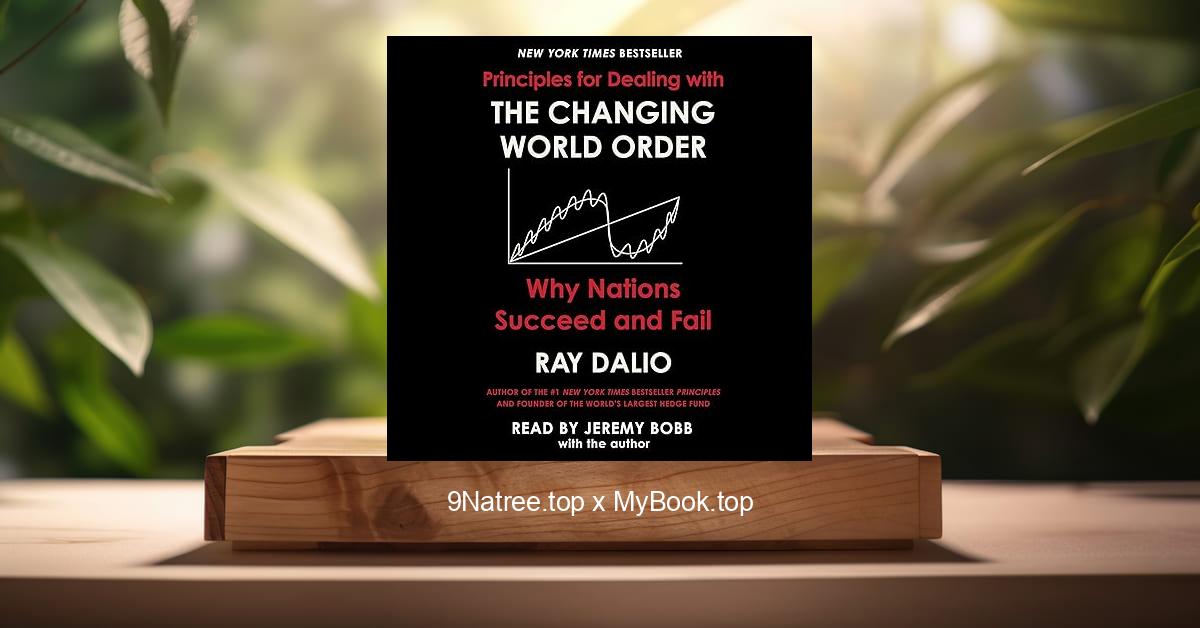Show Notes
Buy on Amazon: https://www.amazon.com/dp/B0058Z4NR8?tag=9natree-20
Read more: https://mybook.top/read/B0058Z4NR8/
#EconomicInstitutions #Inclusivevs.Extractive #PoliticalPower #HistoricalContingency #ResourceDistribution #EconomicDisparity #InstitutionalReform
These are takeaways from this book.
Firstly, Inclusive vs. Extractive Institutions, The distinction between inclusive and extractive institutions forms the cornerstone of Acemoglu and Robinson's argument. Inclusive institutions, characterized by their openness and accessibility, support and encourage the participation of a broad cross-section of society in economic activities. These institutions tend to foster innovation, economic growth, and equality by safeguarding property rights, implementing the rule of law, and promoting investments in skills and technology. Conversely, extractive institutions are designed to concentrate power and wealth in the hands of a few, stifling competition, innovation, and excluding the majority from the benefits of any economic activity. This framework is crucial for understanding why some nations thrive while others stagnate or decline.
Secondly, The Role of Political Power in Economic Success, The book posits that political power dynamics play a central role in determining the economic fortunes of a nation. When political power is concentrated in the hands of a few (as in autocracies or oligarchies), the likelihood of having extractive economic institutions is high, which hinders economic growth. On the other hand, when power is distributed more broadly, leading to more inclusive political institutions, it encourages the formation of inclusive economic institutions. This alignment between political power and economic institutions shapes the path of economic development and helps explain the divergent trajectories of nations.
Thirdly, The Critical Role of Historical Contingency, Acemoglu and Robinson emphasize the importance of historical contingency in the development of institutions. They argue that events such as wars, revolutions, and discoveries can have profound and lasting effects on a nation's institutional framework. These contingent events can lead to significant institutional shifts, pushing societies towards more inclusive or extractive models. The authors provide numerous examples, showing how the outcomes of such pivotal moments have set countries on paths leading towards prosperity or poverty. Understanding these historical contingencies is essential for grasping the depth of today’s economic disparities across the globe.
Fourthly, Economic Institutions and the Distribution of Resources, This topic delves into how inclusive economic institutions not only promote growth and innovation but also play a key role in the equitable distribution of resources. Acemoglu and Robinson show that when institutions ensure that economic opportunities and resources are broadly shared, it leads to sustained economic growth and social stability. In contrast, extractive institutions lead to inequality, social unrest, and economic instability. The book illustrates how policies and institutions that distribute resources equitably are vital for the prosperity and peace of a nation.
Lastly, Lessons from History, ‘Why Nations Fail’ is replete with historical anecdotes and analyses, which serve as both evidence and illustration for the authors' arguments. By looking at a wide range of societies—from ancient Venice to modern North Korea—the book highlights how patterns of institutional development and reform (or their lack thereof) have led to dramatically different outcomes. These historical lessons underscore the importance of inclusive institutions and suggest how countries stuck in cycles of extractive institutions might break free. Acemoglu and Robinson argue that understanding these patterns is crucial for any efforts to reform institutions towards inclusivity and prosperity.
In conclusion, ‘Why Nations Fail’ is essential reading for policymakers, economists, and anyone interested in the dynamics of power, prosperity, and poverty. It offers a profound insight into the mechanisms through which societies thrive or suffer. The book cleverly demonstrates that it is the nature of political and economic institutions, rather than culture, geography, or ignorance, that are at the heart of economic success or failure. It suggests a hopeful outlook that with the right institutional reforms, nations can pave their way to prosperity. This work serves as a powerful reminder of the capacity for change, and the role of agency in shaping a nation’s destiny.
![[Review] Why Nations Fail: The Origins of Power, Prosperity, and Poverty (Daron Acemoglu) Summarized](https://episodes.castos.com/660078c6833215-59505987/images/1699851/c1a-085k3-1xgg0z3of5wg-k4hmsp.jpg)




